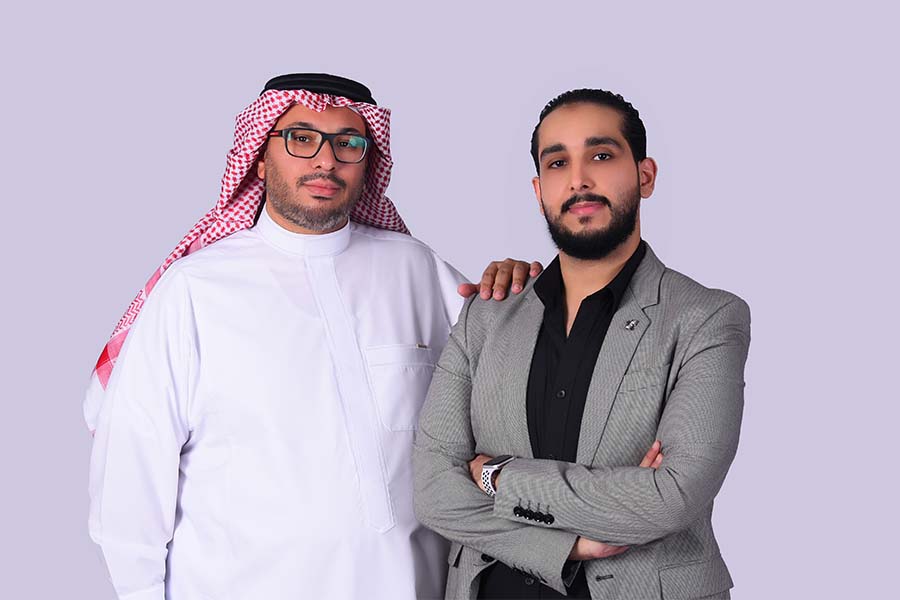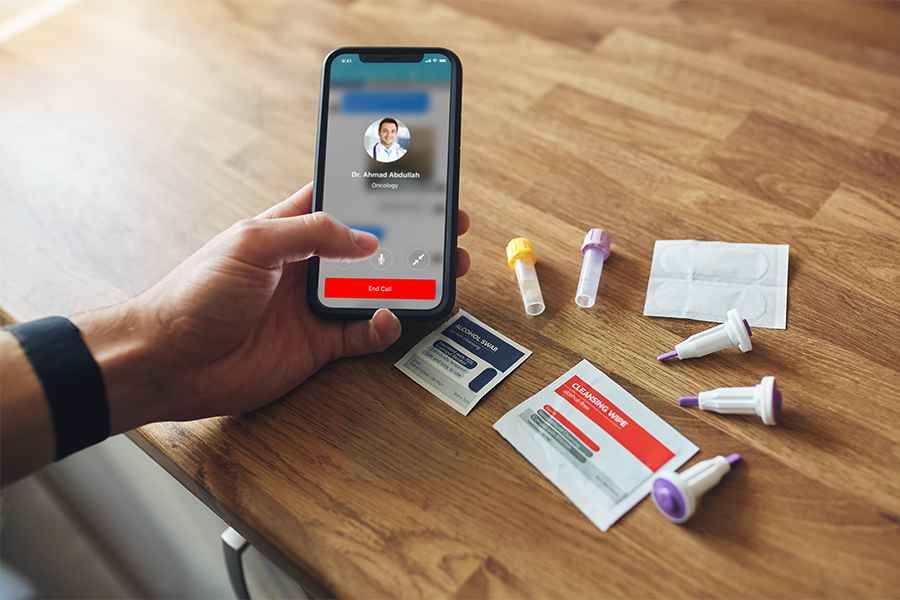
For parents around the world, it is a frightening and all-too-familiar experience when their child is crying and in obvious pain. But if this happens late at night, the doctor won’t see patients until the next day, after parents have spent many anxious hours waiting for a consultation that takes only 10 minutes to complete.
It was after enduring just such an experience with his newborn daughter, that Saudi software engineer and entrepreneur Wael Kabli decided that enough was enough. Why should parents and their children have to go through such unnecessary trauma, when the simplest smartphone technology could connect patients to doctors almost immediately?
Frustrated by the bureaucracy and inefficiencies of the traditional model, Wael and his business partner, Mohammad Zekrallah, decided to launch a revolution in Saudi healthcare.
“When we founded Cura in 2016, telemedicine was unheard of in Saudi Arabia and we had to work very hard to convince people to try online consultations,” Wael remembers. “Now, telemedicine is everywhere and we even supply the technology for the Ministry of Health’s own free app, Sehha.”
Cura provides three main telemedicine services on its platform: instant urgent care consultations with doctors, who are available for live video calls 24/7; a specialty care service for less urgent cases, covering more than 200 different medical specialties; and a set of extended wellness programs, based on weekly sessions with physicians and therapists, that help patients lose weight, reduce stress, or recover from pregnancy.
Since 2016, some 350,000 people have used Cura—the largest doctors’ network in Saudi Arabia—to speak to more than 4,200 doctors. Including the Sehha app licensed to the Ministry of Health, Cura has delivered well over 2 million consultations.
Demand for Cura’s services grew more than sixfold during the Covid-19 pandemic, when there were restrictions on face-to-face meetings between doctors and patients.

Cura has been profitable since 2019 thanks to user fees and revenue sharing with doctors, and its rapid growth has earned it the support of investors. In 2021, Cura secured $4 million in Series A funding from major venture capital funds including Wa’ed, the entrepreneurship arm of energy giant Saudi Aramco. By making it easier for entrepreneurs to raise funds and launch businesses like Cura, the government is unleashing the creative spirit of the Saudi people and transforming not only the healthcare sector, but the entire economy, says Wael.
“The surge in entrepreneurship in Saudi Arabia since 2017 has been a turning point in our history,” he says. “The pace of transition in the country is faster than I could ever have imagined. It is beautiful to see. The possibilities are endless.”
How fast is telemedicine taking off in Saudi Arabia?
Telemedicine is still relatively new in Saudi Arabia. There was no legal framework when we started. We worked closely with the regulator to develop a model for telemedicine. In 2018, Cura became the first licensed company to practice medicine online. Today, the market is growing rapidly. We have trained more than 5,000 doctors in telemedicine. We are the first player in the Saudi market, the only one that works with major health insurers, and the only company that issues online e-prescriptions that are accepted in all pharmacies.
“We are redefining the model of healthcare in Saudi Arabia towards a digital-first approach where seeing a doctor online is society’s first choice”
Mohammad Zekrallah CTO & CO-Founder
What was the impact of the Covid-19 pandemic on Cura?
These are very exciting times for the digital health industry. Public demand for easily accessible online healthcare services grew at an extraordinary rate during the pandemic. We saw tremendous month-on-month growth. Patients and doctors relied on us and we promoted many free services. We proved to Saudis and to the world that we are a reliable and trustworthy healthcare partner. Covid-19 accelerated our development. For the first time, we began working with health insurance companies and we started supporting electronic prescriptions. We also established direct communications with a new range of healthcare providers, including hospitals and clinics.

How easy was it for you to find investors?
Since 2017, the government has created a vibrant and fast-developing ecosystem for entrepreneurship. It has established entities such as Monshaat, which supports small and medium-size enterprises and stimulates venture capital initiatives. A few years ago, it was hard for entrepreneurs here to find angel investors and venture capitalists. Today, if someone in Saudi Arabia has a business idea, it is much easier to raise capital. Regulations are also more supportive. There has been a significant change. For Cura, it is fantastic to welcome on board strategic investors such as Enmaa, Wa’ed and ELM. These are major, highly reputable names that can give us access to new opportunities in the region and support us as our growth accelerates.
How will you be using the funds you have raised?
Our mission is to keep innovating and keep providing the technology and services that people need to live their healthiest lives. We want to improve the entire patient journey and introduce further services, such as collecting blood samples from people’s homes and providing employee health benefits with insurance companies.
Cura is already the first telemedicine provider to enable its customers to use their insurance plans to co-pay for teleconsultation services. The next step is to improve the integration of medical reports, sick leave reports, and corporate systems.
We will also extend our technology to the rest of the healthcare sector, including clinics, pharmacies, and pharmaceutical companies as well as hospitals and doctors.
What plans do you have for international expansion?
Saudi Arabia has always been a promising market full of opportunities, but we also plan to provide our services in other countries, including the GCC countries.
Egypt will play a major role in the next few years and we want to expand in Turkey. Those are the priority international markets for Cura![]()









